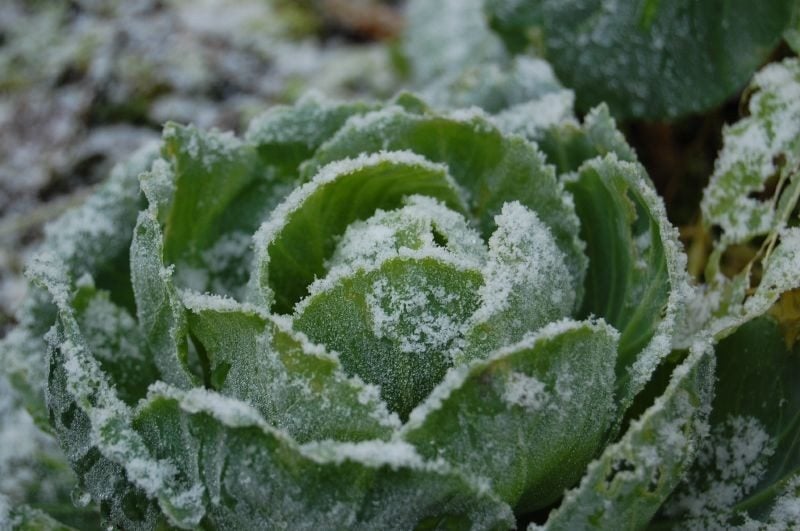Winter Cabbage Info - How To Grow Winter Cabbage Plants


Cabbage is a cool season plant but it takes a little planning to get it to thrive in the full cold of winter. There are a few tricks on how to grow winter cabbage. What is winter cabbage? These are late season varieties of cabbage, but with a little protection, keeping cabbages over winter is possible for most types. If you love cabbage, winter growing varieties will provide the fresh flavor well into the cold season.
What is Winter Cabbage?
The varieties of cabbage that keep best have a colder tolerance and are started later in the season. Winter cabbages have smaller heads and are harder. Some types include Huron, OS Cross, and Danish Ball Head, which are long season varieties that may produce well into winter. Knowing when to plant winter cabbage for a late harvest will ensure that the timing for maturity is during the season. Stagger the planting for more consistent yields.
How to Grow Winter Cabbage
Sow seeds directly into a prepared bed in midsummer. Some gardeners might wonder when to plant winter cabbage. As long as you wait until midsummer, you can sow anytime until late summer or even early fall in mild climates. Seeds will germinate in temperatures as low as 40 degrees F. (4 C.). Successively sow every week for a crop that will last through the winter. Winter cabbage cultivation is the same as early season cabbage. Care must be taken not to get the young leaves exposed to frost or they will wither and die. Winter crops need less frequent irrigation since most of their moisture is supplied by nature. Be careful that the area is not overly soggy and drains well. Cabbages that are in boggy soil tend to split.
Cabbage Winter Growing Methods
You may start the seeds in flats indoors or direct sow in late July to early August. Young cabbage may burn in intense sunlight, so provide row covers. These will help protect them from cabbage flies and other pests too. Row covers have the added benefit of keeping heat in when freezes occur. This will protect the plants from cold burn. Side dress with manure to feed the maturing heads. Ensure that the seed bed has good drainage to prevent ice damage to the roots during cold growing. In temperate climates, the heads “hold” outside quite nicely as growth slows with colder weather. Keeping cabbages over winter in some zones is not possible. You will need to harvest heads in early winter where temperatures plunge to prevent splitting. Try growing cabbage in containers as well. They have shallow roots and produce well in large containers.
Storing Winter Cabbage
You can store winter cabbage in a root cellar, basement, or refrigerator for several months. Remove any damaged leaves on the outside and lay the cabbage on racks or in the crisper in a single layer. The temperature must be close to freezing, but not quite there. Keeping cabbages over winter will reward you with the crisp, zingy flavors in early spring, before the first crop of the season is ready for harvest.
Sign up for the Gardening Know How newsletter today and receive a free copy of our e-book "How to Grow Delicious Tomatoes".

Bonnie Grant is a professional landscaper with a Certification in Urban Gardening. She has been gardening and writing for 15 years. A former professional chef, she has a passion for edible landscaping.